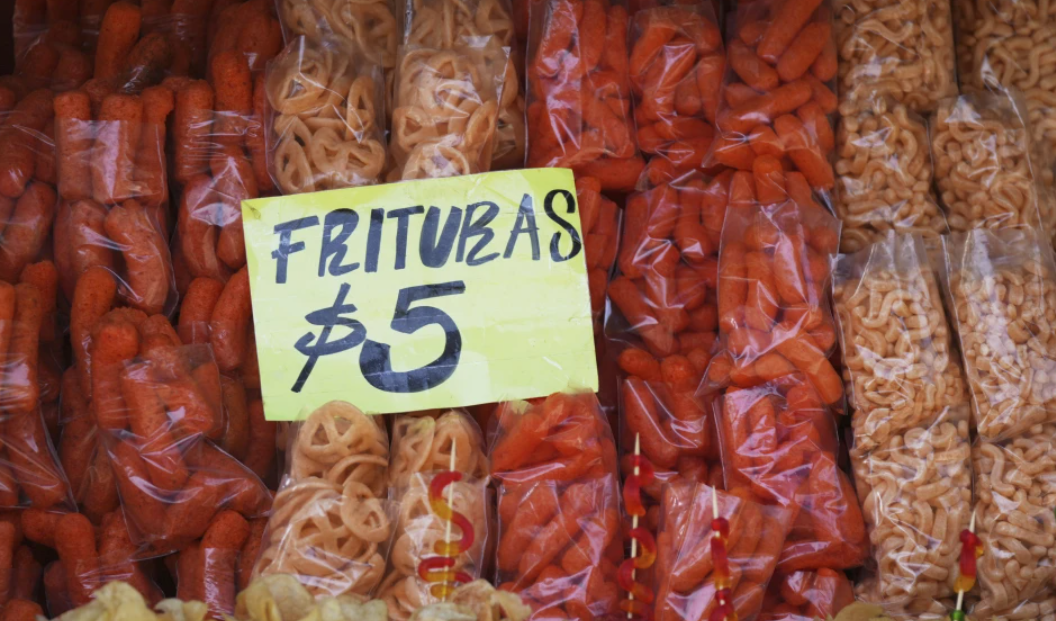A new government-backed ban on junk food in schools across Mexico went into effect on Saturday, aiming to combat the country’s severe obesity and diabetes crisis.
The health regulations, introduced last fall, specifically target salty and sugary processed snacks that have long been popular among Mexican students. These include sugary fruit beverages, packaged chips, artificial pork rinds, and chili-flavored peanuts wrapped in soy.
Mexico’s Education Ministry announced the new junk food ban, stating, “Goodbye, junk food!” The ministry also urged parents to support the initiative by preparing nutritious meals for their children.
Mario Delgado, the public health secretary, emphasized that promoting healthy living is a key goal of the new Mexican school system. He noted that many parents are fully on board with the policy.
This bold effort to transform Mexico’s food culture and influence the eating habits of future generations is drawing global attention, as countries worldwide grapple with the growing obesity crisis.
In the U.S., Robert F. Kennedy Jr., who served as health secretary under the Trump administration, has pledged to transform the nation’s food system with the goal of “Making America Healthy Again” by targeting ultra-processed foods to address rising obesity and health issues.
Mexico’s new policy mandates that schools eliminate any food or drink bearing even a single black warning label, which indicates high levels of salt, sugar, calories, or fat. This front-of-package labeling system was introduced in 2020 to help consumers make healthier choices.
Starting Monday, as the school week begins, the junk food ban will be enforced, requiring schools to replace unhealthy snacks with healthier options, such as bean tacos, and to provide plain drinking water.
Mexican President Claudia Sheinbaum, a strong advocate for the ban, stated, “It’s much better to eat a bean taco than a bag of potato chips.”
According to UNICEF, Mexico’s children consume more junk food than any other country in Latin America, with childhood obesity classified as an emergency. Sugary drinks and highly processed snacks make up 40% of the daily calories consumed by children.
Aurora Martínez, a mother of two, shared her optimism: “At my daughter’s school, they told us that future activities won’t include candy. Instead, there will be fruits, vegetables, and other healthy foods. It will help us a lot.”
Government data shows that one-third of Mexican children are already overweight or obese.
Schools that violate the ban face hefty fines ranging from $545 to $5,450. However, enforcement is challenging in a country where previous attempts to restrict junk food have struggled due to weak monitoring in over 255,000 schools, many of which lack basic facilities like water fountains, reliable internet, and electricity.
It’s also unclear how the government will address the sale of junk food outside school grounds, where street vendors commonly sell candy, chips, nachos, and ice cream to children during breaks and after school.
“It will be difficult,” said child therapist Abril Geraldine Rose de León, “but it can be achieved in the long run.”













